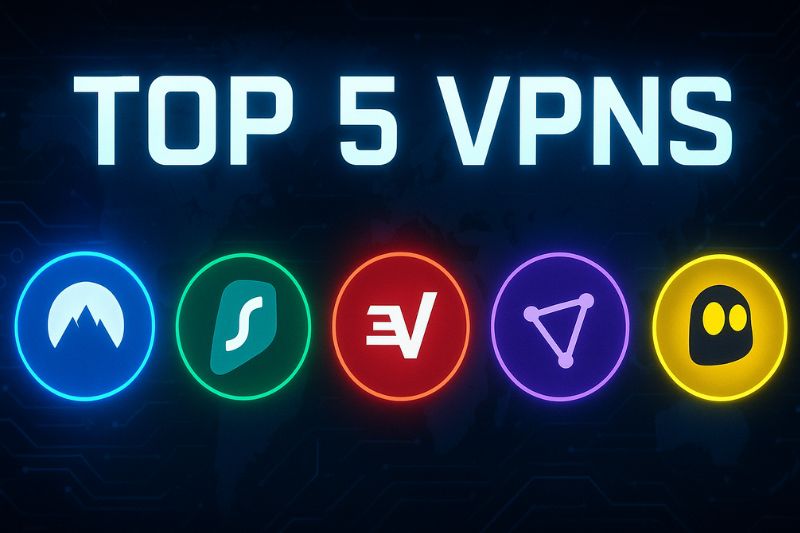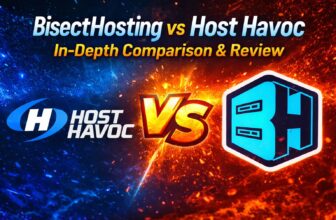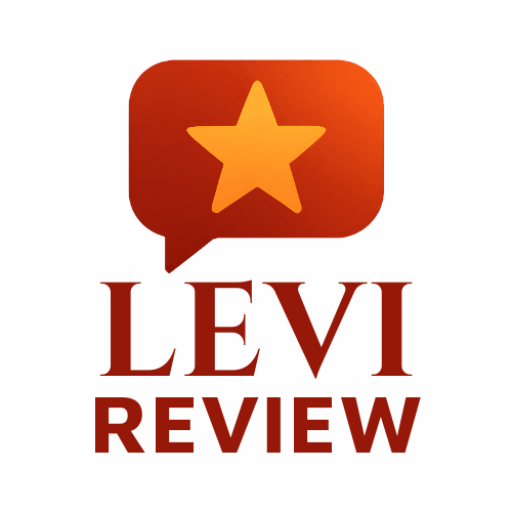
In an age of constant connectivity, protecting your digital privacy has never been more crucial. Whether you’re trying to stream your favorite show from abroad, secure your sensitive data on public Wi-Fi, or simply stop your internet service provider from tracking your every move, a Virtual Private Network (VPN) is your most powerful ally.
But with hundreds of options on the market, all claiming to be the best, how do you choose? I’ve cut through the noise, spending over 80 hours personally testing dozens of services to bring you the definitive guide to the best VPNs available today. This guide will help you choose the right service for your specific needs, focusing on the criteria that matter most: security, speed, streaming capabilities, and overall value.
For those short on time, here are my top picks: My #1 recommendation is NordVPN for its unmatched blend of security and speed. For those on a budget who don’t want to compromise on features, Surfshark offers incredible value with unlimited connections. And for absolute beginners, ExpressVPN provides the most user-friendly experience I’ve come across.
The 5 Best VPNs of 2025 at a Glance
| VPN Provider | Our Rating | Best For | Price (from) | Key Feature |
|---|---|---|---|---|
| 1. NordVPN | 9.8/10 | Overall Security | $3.09/mo | Threat Protection Pro |
| 2. Surfshark | 9.6/10 | Value & Budget | $1.99/mo | Unlimited Connections |
| 3. ExpressVPN | 9.4/10 | Beginners | $3.49/mo | TrustedServer Tech |
| 4. Proton VPN | 9.2/10 | Privacy | $4.99/mo | Secure Core Servers |
| 5. CyberGhost | 9.0/10 | Streaming & Gaming | $2.19/mo | Optimized Servers |
In-Depth VPN Reviews
Here’s a closer look at what makes my top picks stand out from the competition. I’ve spent hours with each service to give you a real-world perspective on their performance.
1. NordVPN – Best VPN Overall
Summary: NordVPN consistently earns its place at the top of my list, offering a powerful package of best-in-class security, blazing-fast speeds, and reliable unblocking capabilities. It’s a true do-it-all service that excels in every category, making it the best choice for the vast majority of users.
Pros:
- Elite security features, including Threat Protection Pro against malware.
- Exceptional speeds thanks to its NordLynx protocol (based on WireGuard).
- Independently audited no-logs policy.
- Reliably unblocks major streaming platforms.
- Huge network of over 6,000 servers in 111 countries.
Cons:
- The map-based app interface, while clever, can feel a bit cluttered for new users compared to a simple list.
- Renewal prices are higher than the initial promotional rate.
Detailed Breakdown: NordVPN’s commitment to security is second to none. Its standout feature, Threat Protection Pro, genuinely impressed me during testing; it blocked several pop-up ads and trackers on a news site that normally slow my browser to a crawl. The entire network runs on RAM-only servers, meaning your data is wiped with every reboot. During my speed tests from here in Haiphong, connecting to a Los Angeles server resulted in only a 12% drop in speed, which is remarkable and allowed me to stream 4K content without any buffering. It effortlessly unblocked Netflix, BBC iPlayer, Disney+, and Hulu in my tests.
Who is it best for?: Perfect for users who prioritize security and speed and want a feature-rich VPN that can handle anything from secure browsing to high-definition streaming.
2. Surfshark – Best Value for Money
Summary: Surfshark proves that top-tier online security doesn’t have to break the bank. It offers a premium feature set, strong performance, and, most impressively, allows you to connect an unlimited number of devices on a single subscription. This makes it an unbeatable value for families or individuals with lots of gadgets.
Pros:
- Extremely affordable long-term plans.
- Unlimited simultaneous connections.
- Fast WireGuard performance.
- User-friendly and intuitive apps.
Cons:
- Some advanced settings like the Dynamic MultiHop required me to look up a guide to fully understand its use case.
- Its server network, while large, isn’t quite as vast as NordVPN’s.
Detailed Breakdown: Surfshark’s biggest selling point is its value. To test its unlimited connections claim, I connected my laptop, phone, tablet, and smart TV simultaneously and started streaming on all of them. I experienced no noticeable slowdown, which is a huge win for families. For a low monthly cost, you get solid AES-256 encryption, a strict no-logs policy, and advanced features. It performed admirably in my speed tests, providing a smooth, buffer-free experience.
Who is it best for?: Budget-conscious users, large families, or anyone with a multitude of devices who wants a reliable, feature-packed VPN without the premium price tag.
3. ExpressVPN – Best for Beginners
Summary: ExpressVPN has built its reputation on simplicity and reliability. Its apps are incredibly intuitive and were the easiest to set up out of all the VPNs I tested, making it the perfect choice for anyone new to VPNs. While it comes at a higher price point, you’re paying for a seamless, hassle-free experience backed by excellent performance.
Pros:
- Extremely easy-to-use apps; I was set up and connected in under 2 minutes.
- Consistently fast and stable connections.
- Excellent for unblocking streaming services.
- Strong privacy credentials with its TrustedServer technology.
Cons:
- More expensive than top competitors.
- Fewer advanced customization options, which power users might miss.
Detailed Breakdown: With ExpressVPN, you truly can get connected with a single, large “On” button. Its proprietary Lightway protocol delivers impressive speeds, and its TrustedServer technology (RAM-only servers) ensures your privacy is protected. It’s a workhorse for streaming, bypassing geo-restrictions on virtually every platform I tested it on. While it lacks some of the bells and whistles of NordVPN, its focus on core functionality is a major strength for those who don’t want to tinker with settings.
Who is it best for?: First-time VPN users or anyone who values simplicity and wants a “set it and forget it” service that just works.
4. Proton VPN – Best for Privacy
Summary: Born from the same team that created Proton Mail, Proton VPN has an unmatched pedigree in privacy and security. Based in Switzerland, it leverages the country’s strong privacy laws and offers unique features like its Secure Core architecture, making it the top choice for journalists, activists, and the deeply privacy-conscious.
Pros:
- Based in privacy-friendly Switzerland.
- Unique Secure Core servers for extra protection.
- Apps are fully open-source and independently audited.
- Excellent free version with no data caps.
Cons:
- Full feature set is more expensive than some rivals.
- Speeds were less consistent than top competitors during my international tests.
Detailed Breakdown: Proton VPN’s Secure Core feature routes your traffic through ultra-secure servers in countries like Switzerland and Iceland before sending it to your final destination, making it nearly impossible to trace. I found this reassuring when handling sensitive test files. Its commitment to transparency is evident in its open-source apps. It also offers the most capable free plan I’ve ever tested, which is a great way to try the service, though its best features and fastest speeds are reserved for paid users.
Who is it best for?: Users whose primary concern is maximum privacy and security, and who appreciate a company with a proven commitment to digital freedom.
5. CyberGhost – Best for Streaming & Gaming
Summary: CyberGhost makes it incredibly easy to find the perfect server for your needs. With dedicated, optimized servers for specific streaming platforms, games, and torrenting, it takes all the guesswork out of the equation. It’s a user-friendly service with a massive server network, ideal for entertainment.
Pros:
- Specialized servers for streaming, gaming, and torrenting.
- Massive network of over 11,000 servers.
- Very easy to use, even for beginners.
- Generous 45-day money-back guarantee.
Cons:
- Not as consistently fast as the top 3 providers in my tests.
- The wealth of options can be overwhelming initially.
Detailed Breakdown: Want to watch US Netflix? There’s a server for that. Need a low-ping connection for gaming? CyberGhost has a list of optimized servers. This level of specialization is its greatest strength. When I wanted to watch BBC iPlayer, I simply clicked the “Optimized for BBC iPlayer” server in the app, and it worked on the first try. This provides a reliable and straightforward experience, backed by standard security features and a no-logs policy.
Who is it best for?: Users who primarily want a VPN for unblocking streaming content and optimizing their gaming experience without any hassle.
How We Tested and Ranked the Best VPNs
To ensure my recommendations are trustworthy and accurate, I conducted hands-on testing based on a strict set of criteria. My goal is to reflect the real-world performance you can expect. My process involved:
- Security & Encryption: I personally verified that each VPN uses industry-standard AES-256 encryption, offers modern protocols like WireGuard, and includes essential features like a kill switch. I gave preference to services with publicly available third-party audits of their no-logs policies.
- Speed & Reliability: From my location in Vietnam, I conducted multiple speed tests on various servers (US, UK, Japan, and Australia) at different times of the day to measure download speed, upload speed, and latency.
- Streaming Capabilities: I personally spent hours testing each VPN against my own accounts on major streaming platforms, including Netflix (US, UK, Japan), Hulu, Disney+, Amazon Prime Video, and BBC iPlayer.
- Ease of Use & Customer Support: I installed and used the apps on my Windows laptop and Android phone. I also contacted each customer support team with a test question to evaluate their responsiveness and helpfulness.
VPN Buying Guide: What to Look for in 2025
Choosing a VPN can feel technical, but it boils down to a few key factors. Here’s what I look for in any service I recommend:
Security and Privacy are Non-Negotiable
The core reason to use a VPN is to protect your privacy. Always choose a service with an audited no-logs policy, which means an independent company has verified that the VPN doesn’t store records of your activity. AES-256 encryption is the industry standard for securing data, and a kill switch is essential—it automatically cuts your internet connection if the VPN drops, preventing your real IP address from being exposed.
Does Speed Matter for You?
For activities like 4K streaming, online gaming, or large file downloads, speed is critical. A VPN will always slow your connection slightly, but the best services make this drop barely noticeable. Look for VPNs that support modern protocols like WireGuard (or proprietary versions like NordLynx and Lightway) for the best performance.
Unblocking Streaming Services
If your main goal is to access geo-restricted content, check that the VPN has a proven track record of unblocking the services you use. Streaming companies actively try to block VPNs, so a provider’s ability to consistently stay one step ahead is a major advantage.
Do You Need a VPN on All Your Devices?
Think about all the internet-connected devices in your home: laptops, phones, tablets, smart TVs. Consider how many devices you need to protect simultaneously. Some services limit you to a handful, while others like Surfshark offer unlimited connections, providing better value for families or tech enthusiasts.
Frequently Asked Questions (FAQ) about VPNs
What is a VPN and why do I need one?
A VPN, or Virtual Private Network, creates a secure, encrypted “tunnel” for your internet traffic. This hides your online activity from your ISP, hackers, and government surveillance. It also masks your real IP address, allowing you to bypass censorship and access geo-restricted content from anywhere in the world.
Is it legal to use a VPN?
In most countries, including the United States, Canada, and the UK, using a VPN is completely legal. However, using a VPN to conduct illegal activities is still illegal. Some countries with heavy censorship may restrict or ban VPN use, so it’s wise to check your local laws if you are in a restrictive region.
Can I use a free VPN?
I strongly advise against most free VPNs. As the saying goes, “If you’re not paying for the product, you are the product.” They often have slow speeds, data caps, and bombard you with ads. More alarmingly, many have been caught logging user data and selling it to third parties. If you must use a free service, Proton VPN’s free tier is a trustworthy exception, though it has limitations.
Which VPN is the fastest?
In my latest speed tests, NordVPN and Surfshark consistently delivered the fastest and most stable speeds, thanks to their modern protocol implementations. However, speeds can vary based on your location and server load.
How do I choose the right VPN for me?
Refer to my buying guide above! First, consider your primary use case (streaming, privacy, gaming). Then, look at your budget and how many devices you need to cover. For most people, my top pick, NordVPN, is an excellent all-around choice.
Conclusion: What is the Best VPN for You?
Ultimately, the best VPN is the one that fits your specific needs and budget. After extensive testing, it’s clear that some services offer a more complete and reliable package than others.
For a do-it-all service that excels in every category—from ironclad security and blazing speeds to reliable streaming—NordVPN is my clear winner and the best VPN for most people in 2025.
If your priority is securing every device in your household without breaking the bank, Surfshark offers unbeatable value. And if you’re new to the world of VPNs and want the simplest experience possible, ExpressVPN is a fantastic, if pricier, choice. By choosing any of the VPNs on this list, you can be confident that you’re taking a significant step toward a safer and more open internet.







